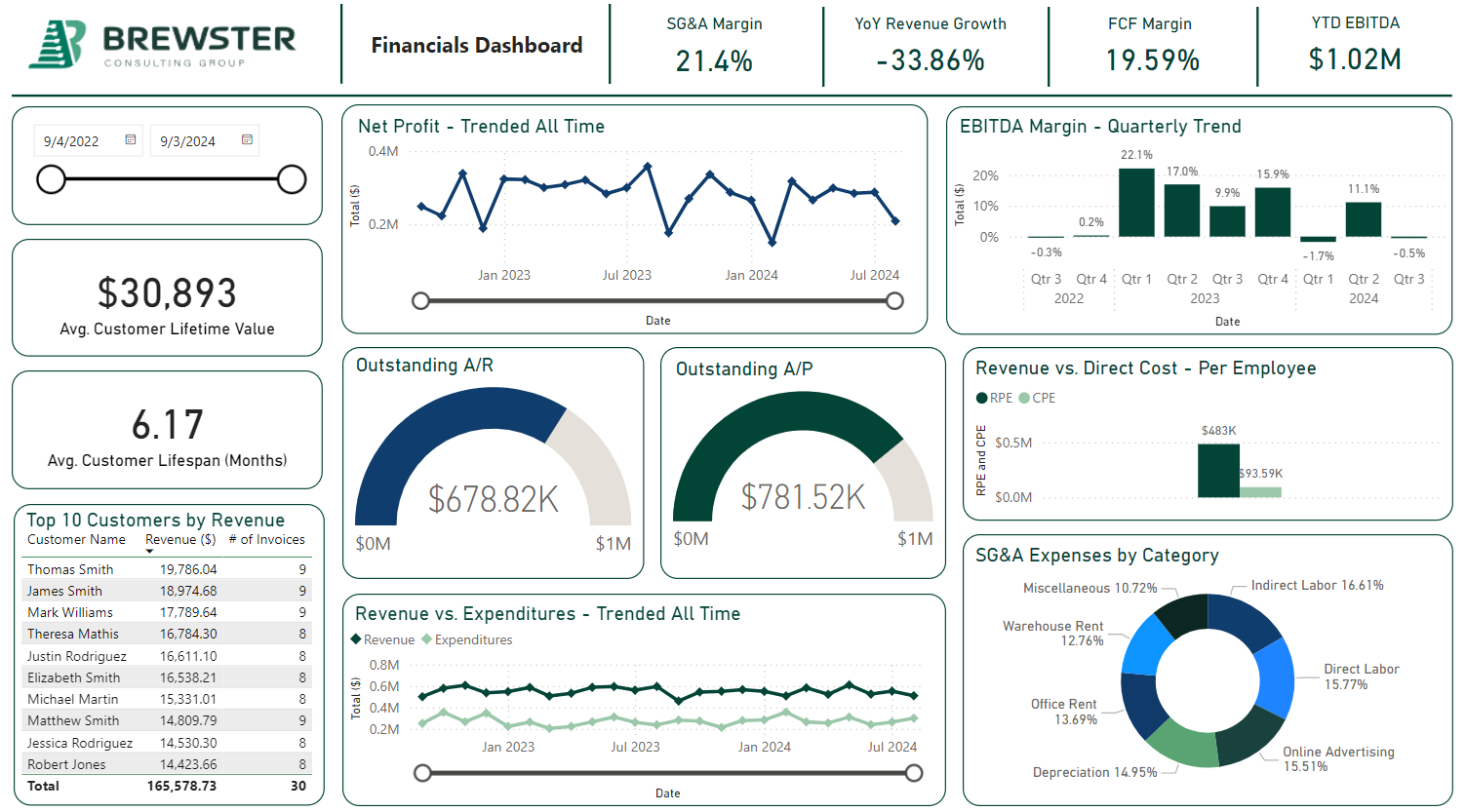By Ranae Peterson
•
October 29, 2025
In the fast-paced world of marketing, agility is everything. But for many small marketing firms , staying organized and executing effectively can feel like an uphill battle. Between juggling client deliverables, managing creative teams, and keeping up with digital trends, it’s easy for even the most talented agencies to lose focus or momentum. That’s where fractional project management comes in - a cost-effective, flexible way for small agencies to gain project management expertise without the overhead of a full-time hire. What Is Fractional Project Management? Fractional project management allows marketing firms to hire an experienced project manager or project management team on a part-time, contract, or as-needed basis. These professionals provide the strategic direction, structure, and accountability of a full-time role, but with the flexibility and affordability that small firms need. Unlike traditional project management roles, fractional project managers adapt to your workflow. They can: Create or refine marketing project management frameworks. Oversee campaign timelines, deliverables, and communication. Manage resources, budgets, and vendor relationships. Introduce project management tools, such as Asana. Provide performance insights to keep campaigns aligned with business goals. The Common Challenges Small Marketing Firms Face: Running a small marketing firm means constantly balancing creativity, client satisfaction, and growth, all while working with limited time, budgets, and staff. While many small agencies deliver incredible results for their clients, their internal operations are often suboptimal. Without proper structure and project management in place, business operations can quickly become reactive instead of proactive. Here are some of the most common challenges small marketing firms face, many of which can be alleviated with the right fractional project management support: 1. Inconsistent Execution of Marketing Strategies Small firms often start projects with enthusiasm but struggle to maintain consistency across campaigns, clients, and platforms. Without a clear project roadmap or centralized process, teams can lose sight of timelines, priorities, or deliverables. This inconsistency can lead to missed deadlines, off-brand messaging, and a loss of client confidence over time. 2. Limited Budgets and Tight Margins Many boutique agencies operate on razor-thin margins, meaning that hiring a full-time senior project manager or operations manager may simply be out of reach. This leads to a “DIY” approach to project coordination, where creative directors, account managers, or even designers end up juggling scheduling and task tracking in addition to their core roles. It’s a recipe for burnout and inefficiency. 3. Attracting and Retaining Talent In the marketing world, top talent wants growth, clarity, and collaboration. When internal processes feel chaotic or constantly changing, employees can become frustrated or disengaged. A lack of structured project management can contribute to high turnover, especially among younger professionals looking for organized environments where they can learn and thrive. 4. Keeping Up with Industry Trends and Technology Marketing trends shift faster than ever, from SEO and social media algorithms to automation and analytics tools. Small firms, often focused on servicing clients, rarely have time to step back and strategically assess which technologies to adopt or how to integrate them effectively into their workflows. This can result in wasted subscriptions, underutilized tools, or outdated methods that slow productivity. 5. Balancing Growth and Quality As marketing firms grow, the complexity of managing multiple campaigns, channels, and clients multiplies. Without scalable project management processes, expansion can lead to growing pains: stretched teams, missed opportunities, and declining quality of work. Fractional project management can help maintain creative excellence while effectively scaling operations. 6. Cash Flow and Resource Allocation Project delays, scope creep, and unclear task ownership often lead to billing inaccuracies and wasted time. Many small agencies underestimate how much untracked work cuts into profit margins. Without proper project visibility or a defined workflow, forecasting becomes guesswork, making it harder to predict cash flow or plan for sustainable growth. 7. Client Communication and Expectation Management Misaligned expectations between the firm and its clients are another major pain point. When communication is informal or scattered across emails and chat threads, misunderstandings arise. A structured project management system creates transparency, accountability, and shared visibility, all key to stronger client relationships. 8. Content Creation Bottlenecks Small firms often pride themselves on creativity, but without workflow organization, content can get stuck in feedback loops. Campaign approvals, revisions, and scheduling can all become bottlenecks that stall production. Over time, this can limit the firm’s ability to scale output or deliver consistently across multiple accounts. 9. Lack of Technology Utilization Even when agencies have invested in tools like Asana, ClickUp, or Monday.com, they often fail to leverage them effectively. Either no one owns the system or team members don’t have time to update it. The result is a fragmented picture of project progress and duplicated effort, both of which fractional project managers specialize in resolving. 10. Burnout and Overwork With so many moving pieces, it’s no surprise that burnout is common among small marketing teams. When deadlines stack up and roles blur, people spend more time reacting to problems than delivering creative solutions. Over time, that stress impacts morale, retention, and ultimately, client results. In short: most small marketing firms aren’t lacking talent, they’re lacking structure. And without a scalable framework for managing people, projects, and priorities, even the most brilliant ideas can get lost in the shuffle. How Fractional Project Management Helps Small Marketing Firms Fractional project management offers both strategic and operational advantages for small agencies, including: Strategic Oversight Without the Cost: Fractional PMs bring senior-level strategy to the table without requiring a full-time salary. They guide teams on where to prioritize resources, how to align goals, and how to scale efficiently. Flexibility and Scalability: Whether your firm manages two clients or twenty, fractional project management services scale with you. You can engage in support during busy periods or for specific initiatives without long-term commitments. Immediate Access to Top Talent: Fractional project managers are seasoned professionals who’ve worked with multiple marketing firms, giving your team instant access to best practices and proven systems. Improved Accountability and Execution: With an external PM keeping projects on track, your creative team can focus on what they do best: creating and delivering exceptional marketing work. Enhanced Profitability and Efficiency: From budget management to workflow optimization, a fractional project manager helps uncover bottlenecks that waste time and money, improving cash flow and project margins. When Should a Small Marketing Firm Consider Fractional Project Management You might not need full-time help yet, but here are a few signs it’s time to bring in a fractional project manager : -You’re juggling too many high-value projects at once. -Projects are constantly behind schedule or over budget. -Your team is overworked, burned out, or missing deadlines. -You lack internal project management expertise. -You feel stuck or overwhelmed trying to manage growth. If these sound familiar, fractional project management might be the missing piece. The Bottom Line For small marketing firms, fractional project management isn’t just about organization; it’s about unlocking growth. With the right systems in place, marketing agencies can scale confidently, deliver better results, and focus on what they do best: creativity and strategy. As the marketing landscape evolves, fractional project management services offer a competitive edge, one that combines flexibility, structure, and cost efficiency.














